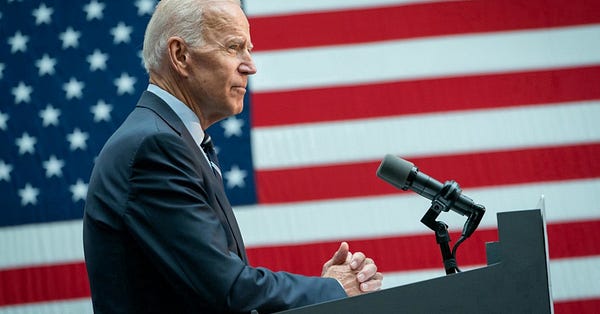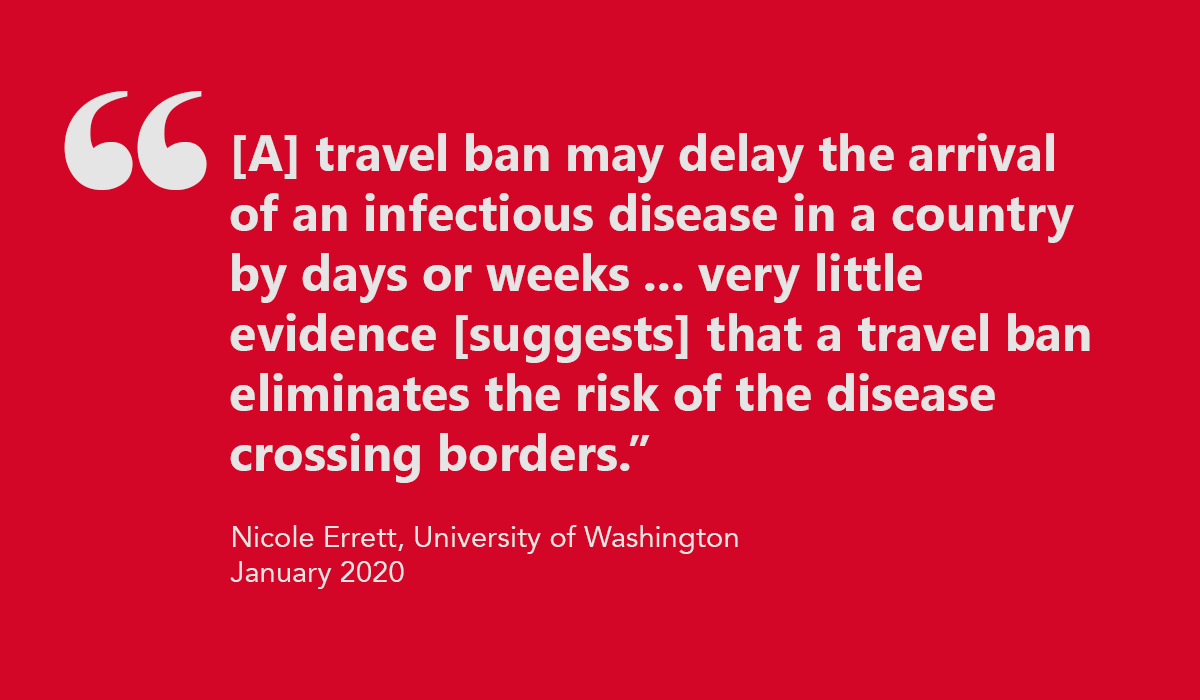27 November 2021 ⚡️COVID-19 travel bans are political theatre
Comparing Biden's COVID-19 restrictions with Trump's 2020 ban on immigration from six African countries is intellectually dishonest. The sole common denominator: Africa.
In the wake of news of a new COVID-19 variant of concern identified by South African scientists, several countries, including the United States, are isolating some African countries through travel bans.
Research suggests such bans are both ineffective and harmful.
“In general, evidence shows that restricting the movement of people and goods during public health emergencies is ineffective in most situations,” according to the World Health Organization (WHO).
Travel measures that significantly interfere with international traffic may only be justified at the beginning of an outbreak, as they may allow countries to gain time, even if only a few days, to rapidly implement effective preparedness measures.
If a public health-related travel ban is to be effective, it “must be based on a careful risk assessment, be proportionate to the public health risk, be short in duration, and be reconsidered regularly as the situation evolves,” WHO continued.
Although “a travel ban may delay the arrival of an infectious disease in a country by days or weeks… there is very little evidence to suggest that a travel ban eliminates the risk of the disease crossing borders in the long term,” according to a January 2020 research paper published by Nicole Errett, University of Washington Department of Environmental & Occupational Health Sciences, and colleagues at Johns Hopkins University.
Due to South African scientists announcing their research Thursday, officials have now identified the Omicron variant in Belgium, Botswana, the Czech Republic (suspected), Germany, Hong Kong, Israel and Italy.
Israel is banning all foreigners from entering the country for two weeks, beginning midnight Sunday.
Meanwhile, other bans are Africa-specific.
Effective Monday, the United States is banning flights from Botswana, Eswatini, Lesotho, Malawi, Mozambique, Namibia, South Africa and Zimbabwe. President Biden called the move a “precautionary measure” but provided no timeline.
Other countries that are implementing Africa-specific travel bans include Canada and the United Kingdom. The European Union is also banning some travel from Africa.
Notice that almost all the countries banning travel from South Africa have much larger per capita case rates; Canada and Israel are the exceptions. Thus, in the main these measures are political theatre. More effective travel requirements: require vaccinations, negative tests, quarantine. And masks.
What about the Trump “travel ban”?
On 31 January 2020, President Trump banned travel from China due to the “risk of transmitting the 2019 novel coronavirus.”
At the same time, he prohibited citizens of six African countries (Eritrea, Kyrgyzstan, Myanmar (Burma), Nigeria, Sudan and Tanzania) from applying for immigration visas. This was an expansion of his 2017 Muslim ban.

In other words, the Trump ban on immigration (not travel) from Africa was not related to COVID-19 or any other public health concern. Visits (i.e., travel) for education, business, medical reasons or tourism were not effected.
The Department of Homeland Security cited concerns about passports and information sharing, not COVID-19, when justifying that immigration ban.
Both former VP Biden and and then-Sen. Kamala Harris criticized the Trump immigration ban, as they had criticized the 2017 predecessor ban. Reversing that Muslim ban was one of Biden’s first acts as President.


Don’t be fooled by the false equivalence permeating the conservative and GOP ecosystem.

The “Trump racist” tweets were in response to the African immigration ban, not the restriction on travel from China. Trump conflated the two in the same press event.
Trump’s restriction on travel from China was not temporary.
Biden’s Omicron travel ban goes into effect Monday
In mid-March 2020, former VP Joe Biden criticized Trump’s COVID-19 travel ban, which had been expanded to include Europe. At that time, 12 March 2020, it was clear that the virus could not be stopped at the nation’s borders and that any ban should be “reconsidered.”
Only four states have not yet identified a COVID-19 infection: Alaska (1/sq mile); Alabama (94.4/sq mile); Idaho (20/sq mile ); and West Virginia (77.1/sq mile). The 41 known deaths are from six states, with most from Washington.
Recall that the WHO noted that travel bans might provide time for countries to “rapidly implement effective preparedness measures.” The United States squandered February. And March. And April …
Without a short timeline or clear “preparedness measures,” this Administration is employing the political theatre that Biden criticized last year. He should reverse the decision Monday, as should Europe and Canada.
Because, as in early 2020, this variant is probably already inside our borders.


“We have not detected it yet, but when you have a virus that is showing this degree of transmissibility,” it will “essentially” spread everywhere, Dr. Anthony Fauci told NBC News. Travel restrictions can give the United States time to assess the situation and respond, Fauci said. But restrictions will not stop Omicron from arriving here.


Earlier in November, the Biden Administration lifted the Trump COVID-19 travel restrictions. In its place: visitors must be fully vaccinated and negative tests. Banning residents from a handful of countries will not stop Omicron from infecting Americans.
Rather than engage in intellectually dishonest comparisons, conservative leaders should join Democratic ones and urge vaccinations, boosters, masking and distancing. And Biden should rescind this ban and urge allies to rescind theirs, too.
👓 See COVID-19 resource collection at WiredPen / See all newsletters
👓 See primary news sources







